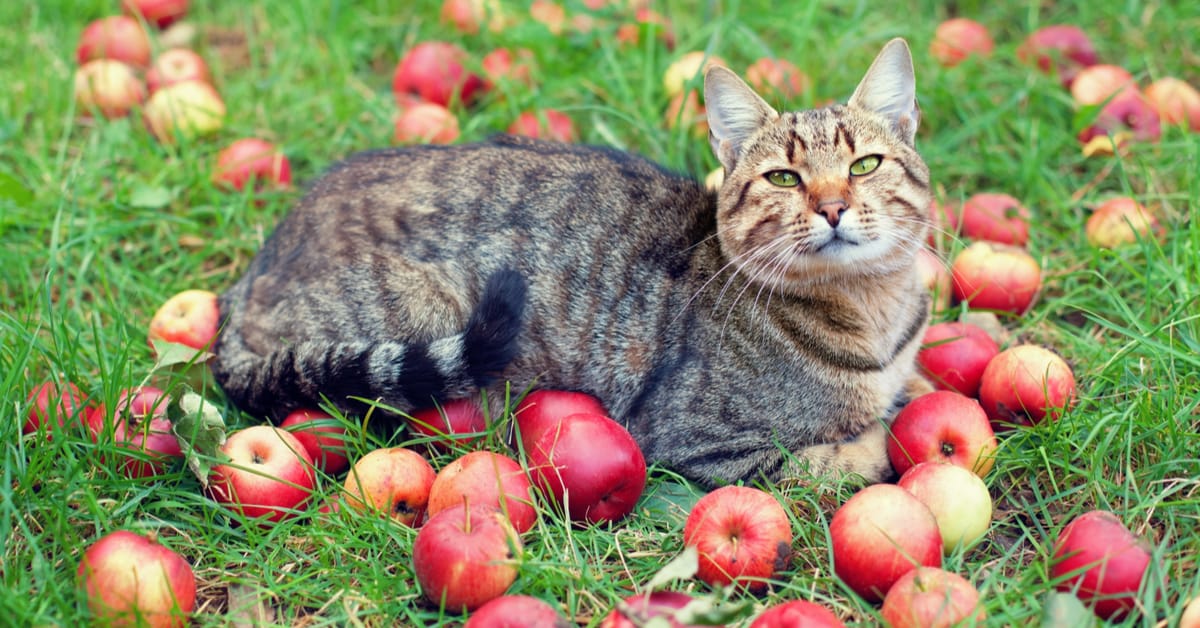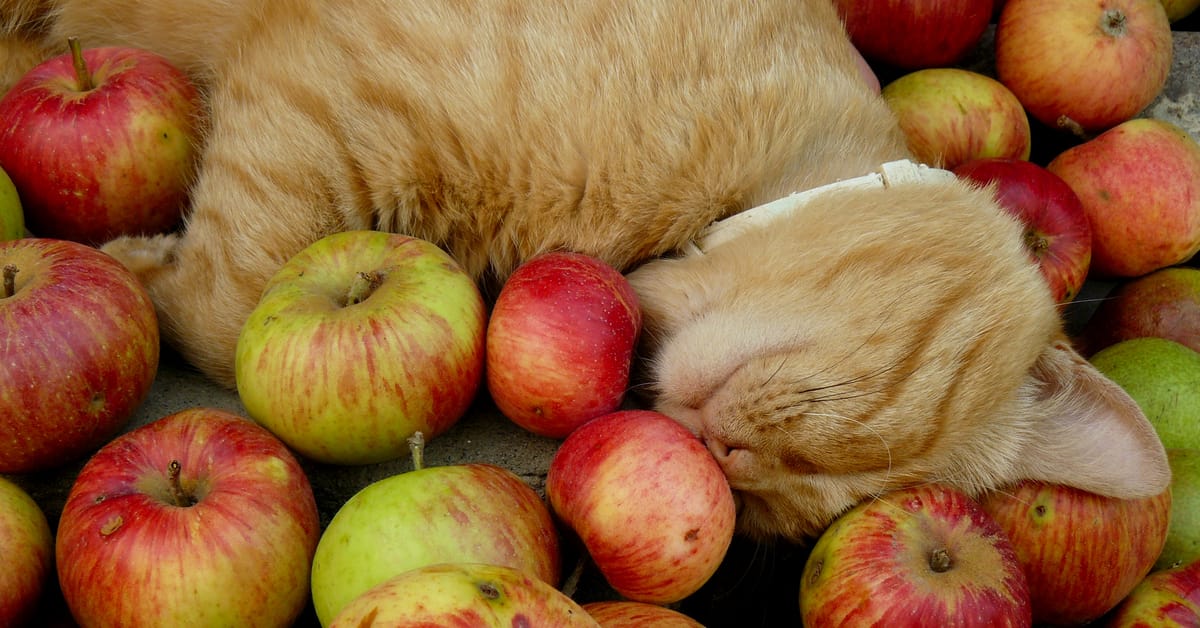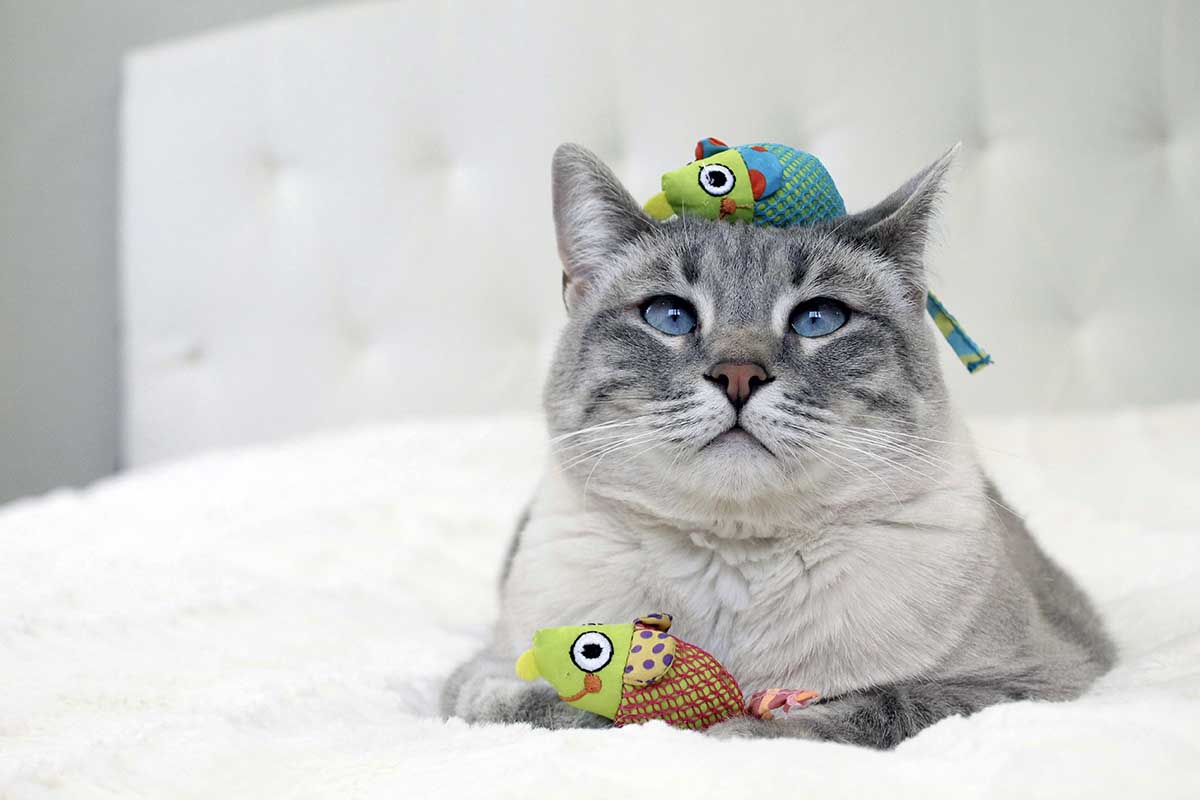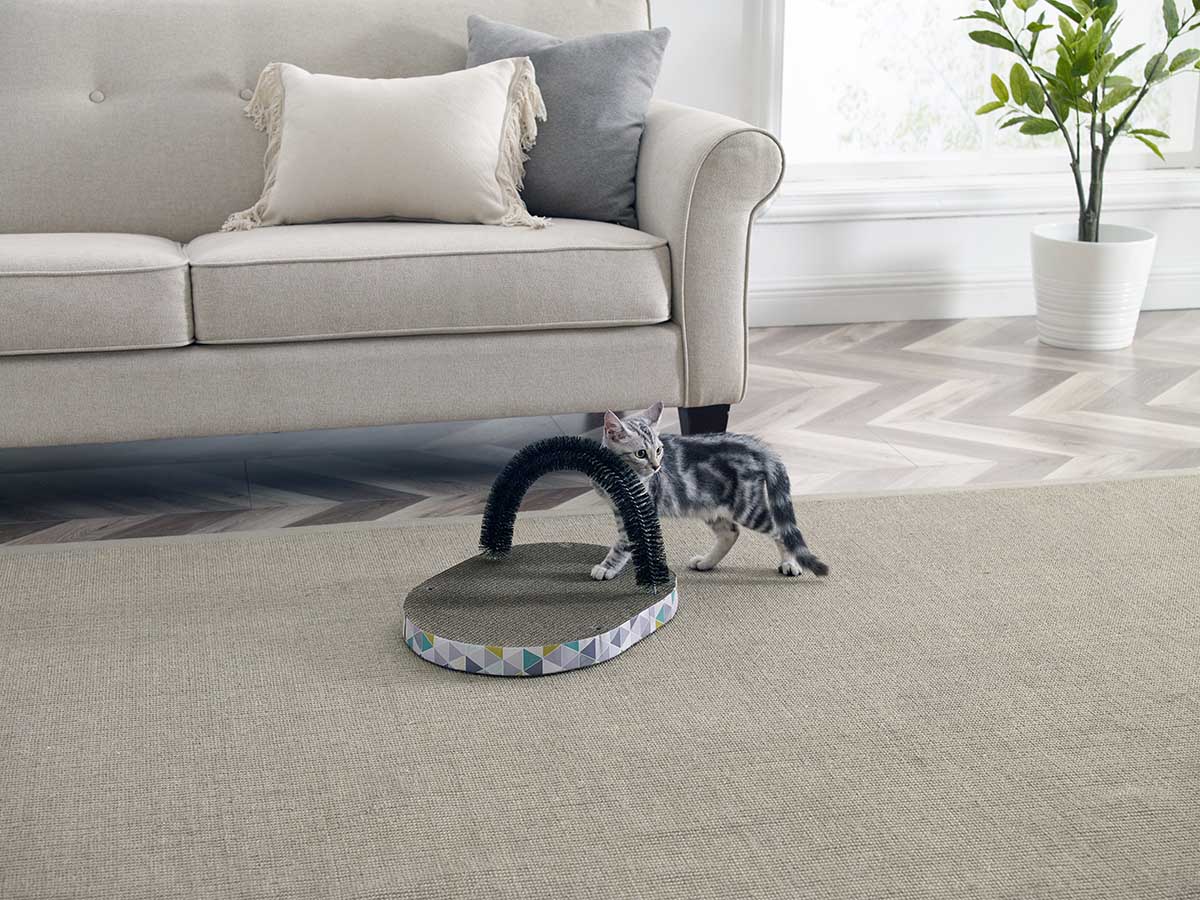Are apples safe for cats?
Can cats eat apples? Sorta.
Life is full of choices. Apricots, cantaloupes, watermelon, apples, they’re all delicious and healthy snacks for people but are they suitable for your cat? Why would cats eat fruit? On the nutritional side, fruit is loaded with fiber, Vitamin C, and phytonutrients (antioxidants).
Yet, is it safe to offer your kitty apple slices as cat treats, and do they have health benefits for felines? Let’s find out!
Apples are high in antioxidants

You might have heard about antioxidants. People often mention them in nutrition and healthy eating conversations. But you might not be aware of what they do for you and why they’re essential.
Antioxidants neutralize free radicals in the environment. What’s a free radical? They’re unstable molecules. Don’t worry; you don’t need to remember high school chemistry. Only that “stable” molecules are healthy and have the same number of electrons.
Those “uneven” molecules, aka free radicals, ping around looking to meet up with other free radicals.
All that pinging around is problematic for your body and can lead to diseases like cancer. It’s the same in your kitty. The antioxidants are so powerful (and popular) because they stabilize those free radicals, leading to better health.
So yes, antioxidants are a great thing to include in your cat’s diet, and apples are full of them. But are they the best way for your kitty to enjoy a healthy snack?
What Are the Nutritional Needs of Your Feline Friend

Instinctively, cats hunt. Mice, baby bats, insects, squirrels, whatever they can stalk, they will. They’ll often kill their prey and eat it. It’s pure instinct, and you may hear cats referred to as “obligate carnivores.” This means their bodies need high levels of protein to function.
This hunting behavior also helps fulfill your cat’s nutritional needs if they aren’t getting a balanced diet.
According to Cornell’s Feline Health Center, an ideal cat food offers a balanced diet in the right proportions. Cat food includes food high in protein like meat or fish, fat, and minimal carbohydrates. The right blend helps your kitty enjoy optimum health.
Apple slices don’t have much protein, nor is your kitty likely to want them. Sure, you can offer your feline friend small pieces of apple, though you’ll probably find they’ll sniff it and walk away.
Generally, cats lean toward savory flavors rather than a sweet treat, and apples are sweeter than their taste buds tend to like. This also means if you’re baking an apple pie, your kitty probably won’t want it, and they definitely don’t need the sugar.
There are also minimal risks with giving your cat apples.
What Risks Are There with Giving Your Feline Friend Apples?

Imagine you’re eating an apple as a healthy snack, and your kitty seems interested. Do you want to offer small pieces to your furry friend?
Animal Trust, a group of not-for-profit veterinary surgeons, says small pieces of apple slices aren’t dangerous to kitties. They may not be able to digest it even if they wanted to eat it, however. Every cat’s digestive system is different, and while one cat might be able to digest apples and even like them, another one might have an upset stomach even from small pieces of apple.
After all, the health benefits of apples may not extend to our feline friends. Not that you’re going to offer your kitty large amounts of apples. I don’t envision a pile of cats pouncing on a bushel of apples – not to eat them anyway.
If your kitty does seem interested in your healthy snack of a Granny Smith, you’ll want to know there is a potential health hazard. Apple seeds, stems, and apple leaves have a small amount of cyanide which can be poisonous. They can also pose choking hazards. Call your DVM or the ASPCA Animal Poison Control Center (888-426-4435) right away if your cat swallows any of these.
A safer alternative is a puree of apples.
Can Your Cat Eat Applesauce?
Applesauce might seem convenient and even healthy, but like most packaged goods, it’s likely filled with additives and preservatives that your cat does not need. If you want to make homemade applesauce and give your kitty a little sugar-free apple puree, that would probably be ok.
The puree is easier on your cat’s digestive system than small pieces of apple since it’s already liquified. However, if your cat eats your apple puree as a sweet treat, keep an eye on them afterward. As with any new food, you’ll want to watch for any symptoms of an upset tummy or digestive issues like vomiting or constipation.
You know your cat’s diet contributes to their overall health, and you’ll want to find healthy cat treats. Look for healthy snacks that fit their general biological needs. I mean, cats eat all kinds of questionable things (from a person’s perspective), but they are obligate carnivores. Small pieces of apple or a little apple puree without sugar can be fine if your cat wants them, but don’t let them have the stems, leaves, or seeds, and watch to see if their digestive system can handle the apple.
The Dangers of Pet Obesity

There’s no doubt that some pets are wildly food-driven. Some dogs and cats will do anything for human foods, and sometimes it’s fun to give your feline friend a taste. Yet, the health benefits of fruits and veggies aren’t the same for our kitties as they are for us.
Cats eat foods high in protein, and their digestive systems require it. While small pieces of apples are generally safe for a healthy cat, it’s good to be aware of your cat’s diet overall and make sure they’re not overeating.
Too many pet parents contribute to pet obesity without even being aware. According to the Association for Pet Obesity (yes, there’s such a thing), 59% of cats are obese. That’s a problem because being overweight puts a lot of strain on the internal organs and joints.
It can also lead to heart disease, diabetes, kidney disease, and a host of others.
What’s considered obese? It’s more than 20% of the cat’s normal weight. Your veterinarian can guide you on the right weight for your cat.
What About Non-Food Related Treats?

As part of your cat health plan, you want to feed a healthy and balanced diet, as well as nurture your relationship in non-food-related ways too. Petting, scratching, and cuddling are good, as are environmental enrichments with boxes or kitty games.
The next time you’re eating apples, notice if your kitty is acting enthusiastic about it. Rubbing up against you while you’re eating is a sure sign of interest. If you like, offer them a small piece and see if they’re interested. But keep it small; cats do have small digestive systems. Does your cat like apples?

